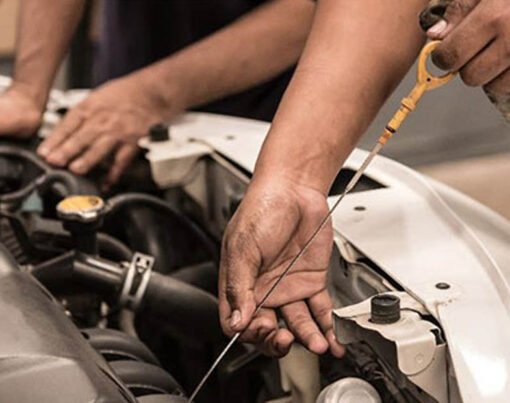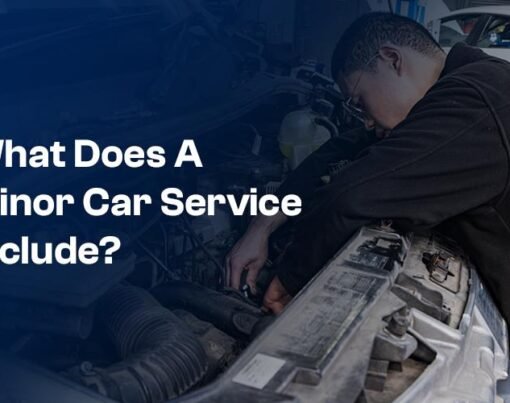Like many other Japan-based car manufacturers, Honda cars are loved by many due to their affordability and top-notch quality. The Honda company is mainly known for its civic and CRV models, which compete with similar models from companies like Toyota, Subaru, and Mitsubishi.
Honda cars are, however, losing credibility in the market due to the many complaints received in recent years regarding the failure of various parts that prove dangerous to consumers. Many of the problems faced by Honda users will shock you and will get you rethinking whether you want to purchase that Honda model you’ve been eyeing.
Table of Contents
1. Failure of Automatic Transmission
Failure of the transmission system is typically a result of a failure of the torque converter, which is caused by either a defective material or a poor design. Defects such as gear slip, slow gear change, and noise in the transmission are often the dramas Honda car owners are forced to deal with before the eventual failure of the vehicles.
More than half of Honda consumers always complain of a flawed or failed auto-transmission system after a particular mileage. The complaints mainly come from owners of the 2001 civic model, the 2002 odyssey model, and the 2003 accord. You can click here to read more about the Honda CRV’s worst year.
This problem did not start recently, as Honda models between 1999 and 2004 were reported to fail well before reaching the 161,000-kilometer mileage. However, the company tried to repair the models’ failure a while back, but most of the vehicles were too old for repair.
To prevent auto-transmission failure, Honda car owners are often advised to replace old transmission fluid with a new one, making transmission easier. If your auto-transmission does not improve with the fluid replacement, you should consider replacing the whole transmission system.
2. Overheating Leading to Failure of the Power Window Switch
Power switches of Honda vehicles are notoriously known for their frequent failure. It is associated chiefly with defective wiring, exposure to rain, and rapid wear and tear.
These causes led to a recall of 268,000 models in 2000 alone. The company also saw a gruesome experience with its power switches after a consumer reported melting the vehicle’s window switch. The report caused a frenzy among other consumers, which prompted an investigation into the matter by the company.
Deductions made after the investigation showed that water could penetrate through the switch surface, which causes overheating and eventual melting of the circuit board, eventually leading to failure. It affected not only the specified car but all 2007 and 2008 models of that particular vehicle.
Many users were immediately urged to get a complete diagnostic of their vehicles by a professional auto-mechanic to prevent a full-blown problem that could lead to a fire incident in the car. The auto-diagnosing is also advisable for all other Honda models as a preventative measure.
3. High Fuel Consumption
This issue comes as a surprise to many car owners as the Honda is known for its affordability. Many will therefore expect to be fuel efficient, which may not be the case. The Honda pilot, for instance, is plagued with high fuel consumption that may be caused by internal and external factors faced by the vehicle.
For instance, external factors such as temperatures and riding length will affect fuel consumption. Other factors, such as under-inflated tires, lack of regular changes in oil, dirty air filters, fuel injectors, and spark plugs, will also negatively affect the efficiency of your vehicle’s fuel consumption.
Worn-out or defective fuel pumps will also make your Honda model fuel consumption skyrocket as the fuel pump struggles to convey required fuel from the tank to the engine to facilitate power transmission.
To help keep track of your vehicle’s fuel consumption, ensure you use cruise control when driving on the highway, steadily accelerate and brake your car, and clean up the fuel injectors, spark plug, and air filters as regularly as possible.
4. Lock-up of Automatic Transmission
This issue affects the 2003 and 2004 Honda Pilot, Odyssey, and Accord and is dangerous.
The problem is caused by a gear failure caused by a chipping of the gear tooth or a breakage. It is caused by a build-up of heat between the secondary shaft and the gears of the countershaft, a manual transmission shaft; there will then be a poor flow of oil used to remove heat from the vehicle.
The gear failure then causes a locking-up of the automatic transmission, leading to a crash.
5. A Poor Braking System
Have you heard of braking systems engaging on their own? It is usually a result of a damaged electric capacitor. The problem comes from the VSA control model manufacturing, and the system malfunction causes automatic and unnecessary partial braking, which could be very dangerous in places such as highways. With such a system, a minor engagement of the brakes would also cause sudden braking, making riding the vehicle an uncomfortable experience.
This issue primarily affects the 2005 Honda pilot model and will require the owner to contact the manufacturer for a total overhaul and replacement of the vehicle stability assist system.
6. Failure of the Ball Joint
Failure of the ball joint has been one of the most prevalent problems facing owners of Honda models below 2009. The Honda surprise, a common phrase used to describe car failure due to failure of the ball joint, has been used to describe the experiences of Honda owners of the mentioned models.
This failure should, however, be familiar as there are signs that can tell you of a failing ball joint. At first, the ball joint will be in constant vibration during motion, which should tell you that it is disconnected from the socket. Remember, the shaking could occur on either side of the vehicle. The shaking also affects the steering wheel of the car, which causes the driver strain when driving.
The joints will also produce a loud noise easily heard in the front suspension system as they are loose and continually hit on each other’s surface.
If you constantly ignore these signs, chances are you will find yourself stranded on the road when eventual failure befalls the ball joints. To prevent this misfortune from happening, you must ensure you regularly avail your car for maintenance checks as often as possible or once you hear these signs. It will surely save you a great deal of time!
7. Leakage of Oils and Coolants
Commonly faced by the Honda element 2003 to 2011 models. Oil and coolant leaks are often associated with defective pressure sensors. The sensors will cause oil to leak into the external parts of the vehicle and the coolant into the combustion chamber inside the vehicle. Internal leaks cause wear and tear on the head gasket, an added repair cost to the car owner.
However, oil and coolant leaks can be prevented by regularly maintaining your Honda to ensure pressure sensors are working correctly and a head gasket affected by wear and tear is replaced.
8. A Sudden Power Loss of Fuel Pump
This problem is one of the most dreaded in a Honda vehicle as it could easily cause a crash. A power loss in the fuel pump is typically due to a lack of proper contact between the fuel pump and the terminal in the main fuse box. In most cases, this is due to a deformed terminal resulting from a broken die punch.
A vehicle owner experiencing this trouble must contact the manufacturer, or the dealership store that sold the car, as it is typically a defect straight from the manufacturing process and cannot be solved by your local mechanic. The problem affects the Honda accord and odyssey models of 2005.
9. Poor Airbags Installation
This problem, sourced by the manufacturing company, has affected many models of the Honda company. They include the accord, element, fit, civic, CR-V and pilot. The problem is reported to be due to dealer technicians incorrectly installing the inflators for the airbags in these models, which hindered the airbags from inflating.
The dangerous installation not only negates saving lives when needed but could also cause injuries to the passengers in case of a crash. Therefore, Honda car potential owners must perform a diagnostic check before purchasing the cars to ensure safety. It is done by making sure all the sensors of the airbags and circuits are working well. To prevent potential injuries, car owners must check if their vehicle models are under recall for the airbags issue.
10. A Deformed Ignition Interlock
This problem is due to the change in the angle of switch rotation from 165 to 120 degrees without making necessary changes to the interlock blocking system. This negligence could damage the blocking system when removing the ignition key as the driver applies force. It will also affect the gear park position as the ignition key is removable when the car is not in park gear.
Conclusion
Many of the issues Honda cars are easy to prevent if the car owner regularly gets their vehicle checked for maintenance services. However, it is essential to investigate the major problems that may affect your specific Honda model to help you maintain your vehicle better. It’s best to weigh out your options before purchasing a car, better be safe than sorry!










